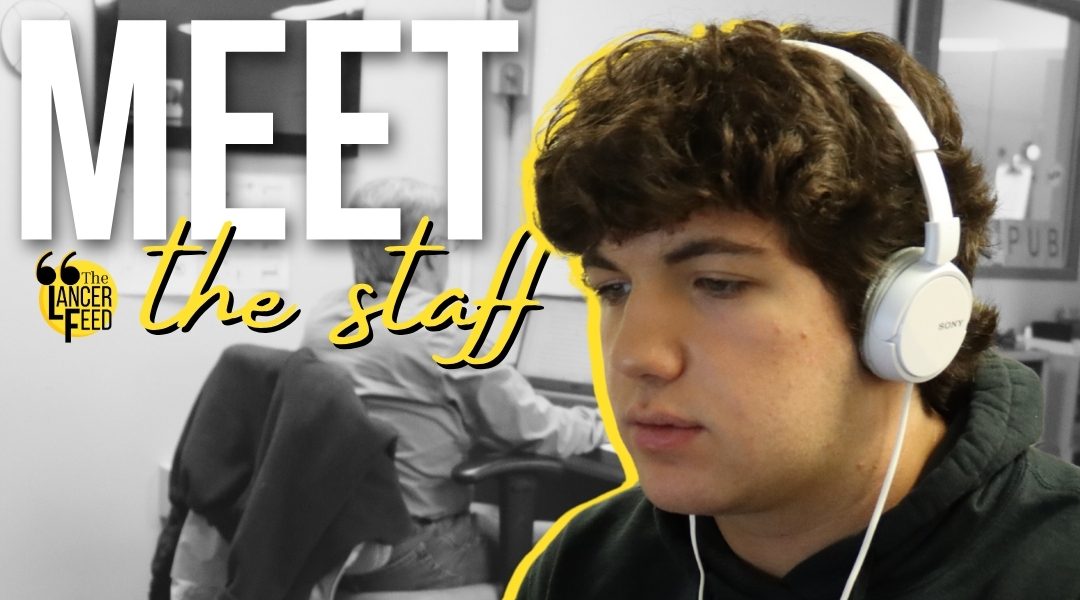Part-time jobs teach important skills, challenging scenarios create learning opportunities
photo courtesy of Hailey Fitts
Junior Marissa Trottier restocks bagels during her morning shift at St. Louis Bread Company.
January 7, 2021
Not all jobs are as glamorous as we’d like them to be, strange and unexpected situations can arise, which can make for a pretty interesting work shift. Dealing with difficult customers, co-workers, and other challenging obstacles are inevitable in every workplace. Developing effective conflict resolution skill sets is an essential component of building a sustainable business model.
Juniors Abby Miltenberger and Drew Powell and senior Jack Jaeger have witnessed some of these disputes in their own places of employment.
In many stores today, we see the signs warning about being on camera and advising that shoplifters will be prosecuted. Despite these measures, every year, billions of dollars worth of products are stolen from retailers. Jaeger works at Ace Hardware, where two customers almost stole $900 worth of equipment.
“A mid-20s couple walked in while we were super busy due to big sales, and they put two sets of power tools, both costing $450 each, in their cart,” Jaeger said. “They walked out the front door and since we were all occupied with customers no one noticed until one of the cashiers called for a manager on the radio saying that there were people trying to steal.”
Jaeger’s manager ran out of the office and out the exit towards the couple, fortunately, they did not get very far.
“The couple saw my manager coming and let the cart go so that they could get away, I saw them get into a red company truck and then they were gone,” Jaeger said.
Similar to Jaeger’s story, Powell has witnessed a customer shoplifting, too. Powell works at The Home Depot, where they sell many high-end appliances, tools and other hardware/construction equipment. One afternoon, he was helping pull in carts from outside and noticed a man rush out of the building with a KitchenAid fridge on a flat cart.
“I thought to myself that it was such an odd sight to see a fridge out of the box with no one requesting loading help, but I figured that there wasn’t anything to be worried about,” Powell said.
Unresolved conflict often results in loss of productivity, the stifling of creativity, and the creation of barriers to cooperation and collaboration. Still, Powell continued to complete his tasks and later discussed the matter with a fellow associate and they spoke to the service desk employee who also witnessed the whole thing as the man walked out.
“My coworker told us the man had not paid for it and that he had just walked out, just like that. We later found out from management that the guy walked out with a KitchenAid fridge display worth $5,000,” Powell said.
Astonished the man had done that himself, without any other associate asking him for a receipt or anything to show that it was paid for, in addition to the fact that he came in and took a display model fridge, Powell said he and his coworkers realize now they should have been more aware.
Having to manage situations like this is stressful for employees. Interacting with customers on a daily basis can also be stressful, especially when those customers are stubborn. Being able to stay professional and work to find a solution for customers to keep them happy is also a great skill for employees to learn.
Abby Miltenberger, an employee at St. Louis Bread Company, receives complicated orders and requests almost every time she works. Most recently, a customer in the drive-thru and asked for a case of bottled green tea. Unfortunately, they didn’t have the right amount.
“We didn’t have a full case but had just enough around to make up 12 bottles (the amount in a case). This lady didn’t want that, though, and she kept insisting we keep checking the back. After several minutes of looking, we just took the half-empty box and filled each new bottle up and taped it shut,” Miltenberger said.
Nearly 30% of high school students are employed in a job for at least a portion of the school year. For many, working a job provides spending money for a social life. For others, working is necessary to help the family make ends meet or to save for college.
Cooperative Education teacher Matthew Landwehr said, “Outside of money earned, having a job in high school is important because you can use it in any job that you do. Learning how to properly interact with customers, employers and properly represent yourself all lead to the success of the business and you as the employee, good customer service is the lifeblood of a business.”



































